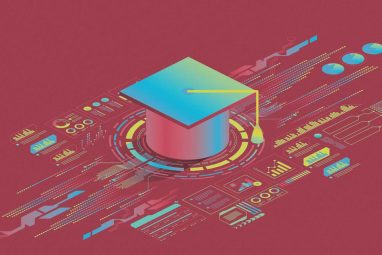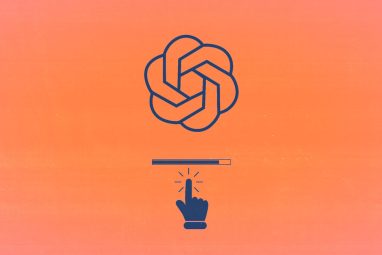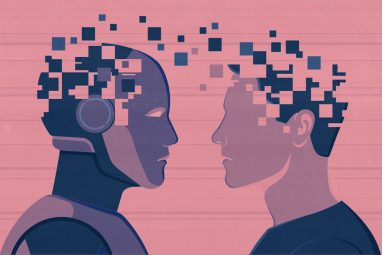Will Quantum Computing Ever Have its ChatGPT Moment?
IBM says that moment is coming—and it could arrive by 2026
News
- India Looks to Orbit for Its Next Data Centre
- IIT-Bombay, Columbia Team Up to Build AI Backbone for Indian Manufacturing
- India Bets on Digital Public Infrastructure Model for Education AI
- OpenAI Retires GPT-4o as It Consolidates ChatGPT Models
- Adani Power Sets Up Nuclear Subsidiary
- Musk Unveils xAI Overhaul, Lunar AI Ambitions

The entry of ChatGPT in 2022 was a defining moment that showed how AI could move from labs to life.. now, quantum computing may be next.. But unlike AI’s mass appeal, quantum’s inflection point won’t come through chatbots or photo filters, but in deep tech domains and industrial settings.
“When quantum computing moves beyond just scientific research and begins to gain traction in real-world applications, including potential consumer use cases, that’s when adoption truly begins,” Venkat Subramaniam, Quantum Lead at IBM Research India, said in an exclusive conversation with MIT SMR India.
IBM believes that the moment is fast approaching, and it will be by 2026.
“That’s the year when quantum computers will begin solving real-world industrial problems that are either significantly faster or more cost-effective to solve using quantum computers than with classical systems alone,” Subramaniam said.
While the term “ChatGPT moment” has come to define the point at which a technology enters mainstream awareness, quantum computing’s breakthrough will likely take a different path, not through consumer exposure, but by demonstrating real-world utility in sectors like healthcare, life sciences, materials science, and supply chain optimization.
IBM’s quantum journey
IBM has long been synonymous with computing innovation. Its quantum ambitions date back to the 1970s when IBM scientist Charles Bennett helped develop quantum information theory. In 1981, IBM co-hosted the groundbreaking “Physics of Computation” conference with MIT, where physicist Richard Feynman famously said, “Nature isn’t classical… and if you want to simulate nature, you need a quantum computer.” That moment essentially launched the field of quantum computing.
Fast forward to 2016, IBM made quantum history again by putting a 5-qubit computer on the cloud, opening the door for global experimentation. Since then, IBM has rolled out over 80 quantum systems and now supports a community of 650,000 users across 275+ organizations worldwide.
In India, partnerships span major players like TCS, LTI Mindtree, startups such as BosonQ Psi, and even the Andhra Pradesh government.
“Our mission is to bring practical, useful quantum computation to the world. And India plays a central role in that mission, with its massive talent pool and growing industry interest,” Subramaniam said.
Despite interest, quantum computing is misunderstood
“Many people still believe quantum computers will completely replace classical ones, or that they are just more powerful versions of today’s machines. These are myths,” Subramaniam noted.
He emphasized the need for broader education, not just for researchers and programmers, but also for industry leaders and policymakers. “When government officials start asking, ‘Can quantum help India’s agriculture or healthcare sectors?’, that’s the kind of conversation we want to support.”
According to Subramaniam, companies like IBM, in collaboration with academia, must take the lead in demystifying quantum and creating a clear roadmap for real-world applications.
Energy, AI, and the Quantum Efficiency Argument
The rising energy consumption of large language models (LLMs) also casts a spotlight on the need for more efficient computing paradigms. Subramaniam drew attention to the growing concern: “Every time a new LLM is developed, it’s almost like we need to set up a new power station just to support it.”
With the explosion of data volumes and the high computational cost of AI, the industry is under pressure to rethink how AI systems are built. Encouragingly, breakthroughs like DeepSeek have achieved a 20X reduction in GPU usage and training time, and quantum computing is following a similar trajectory.
In fact, quantum machine learning already shows promise in reducing data requirements. “As children, we learn to identify a cat after seeing just a few examples,” Subramaniam explained. “Today’s AI models need thousands. Quantum could help us close that gap.”
What Quantum means for India
For India, the opportunity is both technological and strategic.. First, the computational potential: Quantum computers can tackle problems that classical systems simply can’t, from drug discovery and materials science to logistics and climate modeling.
Second, the cybersecurity imperative: As quantum systems become more powerful, they could break existing encryption methods, posing a serious risk to digital infrastructure.
Subramaniam warned, “Quantum computers will eventually be able to solve the mathematical problems that underpin today’s encryption, like prime factorization. That puts everything from banking to Zoom calls at risk.”
Globally, governments are acting. The US has mandated quantum-safe cryptography for all federal systems by 2035, while some European countries are aiming for 2027. India is also stepping up, and this shift opens a significant opportunity for Indian cybersecurity professionals and engineers to take the lead in helping global systems transition to quantum-safe encryption.
Quantum Computing in five years
IBM’s quantum roadmap lays out two transformative milestones:
2026: Achieving quantum advantage, when quantum systems begin delivering tangible, practical value for specific industries, especially in material science, molecular simulation, and life sciences.
2029: The launch of a large-scale, fault-tolerant quantum computer, code-named Starlink. With 200 logical qubits and the ability to perform 100 million operations, this system will push quantum computing into a new era of reliability and scale.
But IBM is clear, quantum won’t replace classical computing. Instead, the future lies in hybrid systems that combine the strengths of both, tackling problems once thought impossible.
More than 60% Indian professionals in a survey by global tech body ISACA said quantum computing will transform industries by accelerating AI, enabling faster data analysis, and creating new business opportunities.
However, concerns remain high, especially around cybersecurity, with 53% of the respondents fearing current encryption could be broken before quantum-safe protections are in place. The looming risk of “harvest now, decrypt later” attacks is also a major worry, cited by more than half of respondents.
And especially in India, where the talent pool is enormous, we need to ensure this capability is directed toward national and global goals, Subramaniam said.






